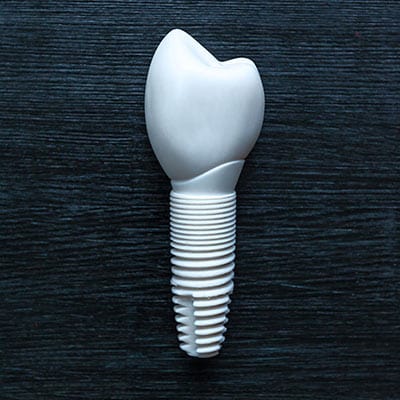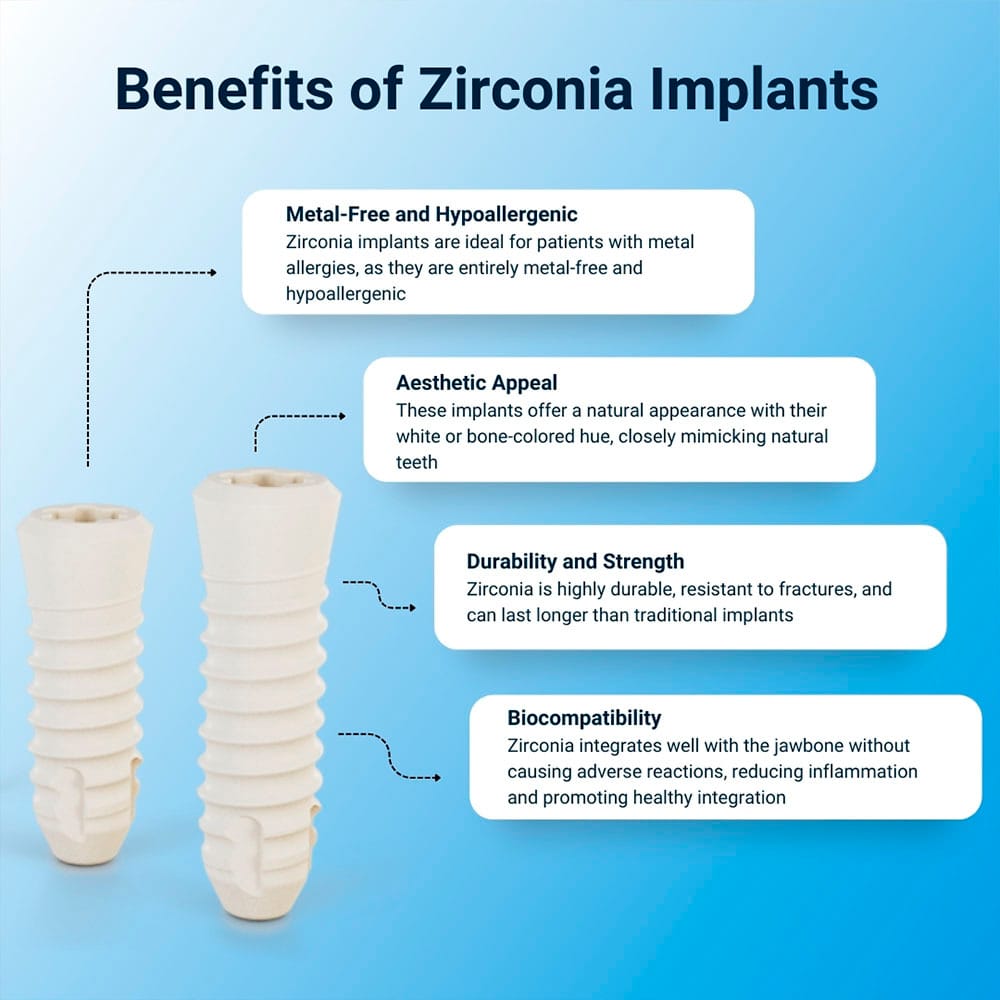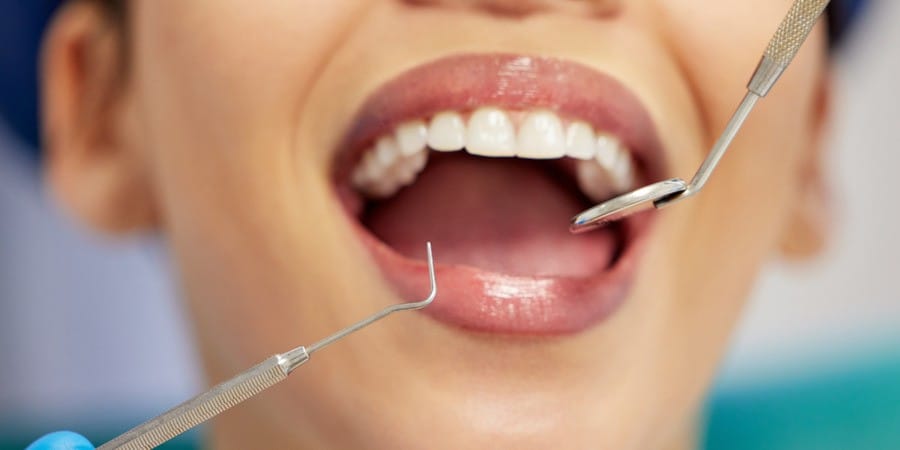What Are Zirconia Dental Implants?
 Zirconia is a ceramic material that is called a transitional metal. It consists of zirconia and oxygen elements that when combined, create a ceramic material that has the strength of metal. We also use zirconia to create beautiful crowns and bridges.
Zirconia is a ceramic material that is called a transitional metal. It consists of zirconia and oxygen elements that when combined, create a ceramic material that has the strength of metal. We also use zirconia to create beautiful crowns and bridges.
These dental implants received FDA approval in 2011 and have been used extensively in Europe. Like titanium, zirconia is biocompatible, and these implants will soon integrate with your jawbone. They can be a great choice for certain situations.
What Are the Benefits of Zirconia Implants?
The benefits of choosing zirconia implants can include:
- Zirconia is inert. This material is the only option available for people who cannot have metal implants or who have known metal allergies or sensitivities.
- Aesthetically pleasing. Zirconia is white or bone colored, so it is automatically more aesthetically pleasing compared with metal implants.
- Available as two-piece implants. Originally, when zirconia implants were introduced, they were only available as a one-piece unit combining the implant screw and abutment. Nowadays, they are available as two-piece implants, allowing our dentist to customize the abutment and create an optimal treatment outcome.
- Good resistance to dental plaque. Zirconia is a very smooth material that can help you maintain good gum health more easily.
- Corrosion resistant. Zirconia is completely corrosion-resistant. Corrosion is unlikely to be an issue with titanium implants but can occur if the implant is exposed.

When to Consider Zirconia Implants?
Most people are fine with titanium dental implants, but some have metal sensitivities, allergies, or concerns about having metal in their bodies. Ceramic dental implants are non-allergenic and eliminate these concerns. Once in your jawbone, the zirconia soon becomes firmly fused in place.
Zirconia implants can be a good option for anyone with naturally thinner gum tissue. The ceramic color is close to the color of real teeth and can help provide superior aesthetics. It eliminates the risk of titanium alloy implants shining through.
Are There Any Risks in Choosing Zirconia Dental Implants?
There are few risks in choosing this material, but it is newer compared to titanium implants and less widely studied for its longevity.
These implants must be inserted optimally as otherwise, the physical properties of the material could be adversely affected. Computer-guided dental implant surgery ensures that any risks are minimized as much as possible.
We will discuss the pros and cons of zirconia implants with you in some detail to ensure you make the right treatment choice.
The Procedure for Zirconia Dental Implants
The procedure for zirconia dental implants is similar to all our procedures. The treatment steps are briefly outlined below, but you can find more detailed information on our dedicated dental implant page.
Initial Consultation and Treatment Planning
An initial consultation and diagnostic imaging help us determine if zirconia implants are the right choice and plan your treatment precisely using computerized technologies. A computer-generated surgical stent will guide our implant dentist during your surgery.
Implant Placement
A short surgical procedure is needed to insert your zirconia implants into your jawbone. The exact procedure will depend on whether you have a single-piece implant incorporating an abutment or a two-piece zirconia dental implant.
Healing and Osseointegration
Like titanium implants, your zirconia implants need time to heal and fuse with your jawbone during Osseointegration. It can take anywhere between two and six months for this to occur. During this time, we can provide temporary teeth if required.
Creating Fitting Your Final Implant Restorations
The final stage is to make and fit your new implant restorations.
Do You Need Zirconia Implants?
If you are concerned you may have a metal allergy or sensitivity, you might need a blood test called a MELISA test. Titanium hypersensitivity is rare but can be detected by this test. MELISA tests are used worldwide and provide reliable results.
Contact Us to Learn More About Zirconia Implants
An initial consultation with our dental implant dentist at Clock Tower Dental will let you learn more about zirconia implants and other implant solutions available. We can discuss zirconia dental implants in detail and help you determine if they fit your needs.

